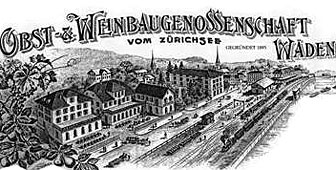
Zurich wine business needs help

The vineyards surrounding Lake Zurich are little known outside the region, and winegrowers are asking for help to get their wines to a wider market.
Werner Koblet, head of the department of viticulture at the Swiss Federal Institute of Technology in Zurich, told swissinfo that Swiss wines in general needed help to find a place in global markets.
“Nobody knows about Swiss wines outside of Switzerland – they may know about Swiss cheese or watches or the Matterhorn even, but they don’t know Swiss wines,” Koblet explained. “If tourists come to Switzerland and stay in a hotel they look for a French or Italian wine because no one outside of Switzerland even knows that we grow grapes.”
Since the relaxation on duty for imported wines, Swiss winegrowers have been left unsubsidised by the government.
Hans Ritschard, business manager of the Obst- und Weinbaugenossenschaft vom Zurichsee (OWG) – told swissinfo that wine growers in the Zurich region at least need help in marketing their products.
“The help from the government does not exist so we have to market it ourselves,” said Ritschard. “The problem is with the new
WTO agreement that wine is imported in much bigger quantities and this is in direct competition with our own wine.”
Roman vineyards
Wines have been grown in the Zurich region since Roman times, with more than 1,000 hectares under cultivation at the industry’s peak at the end of the 19th century.
Only 100 hectares of agricultural land is now turned over to wine production in the Zurich region, with most of the wine produced being consumed locally.
“We have private clients, we also have hotels and restaurants and then there’s the retail trade,” explained Ritschard. “But that’s not so important for us at the moment.”
OWG started 100 years ago as a cooperative association to help wine growers in the Lake of Zurich region produce and sell their wines.
Now though, the association, which produced 3.5 million bottles of wine per year, is looking to turn into a private company to compete more effectively on the market.
Changing tastes
Changes in consumer taste have also encouraged Zurich’s wine growers to change the wines they produce.
“We have lighter wines, like white wine Riesling but also red wines,” noted Ritschard. “But they are not to compare with a Beaujolais or a Bordeaux.”
Koblet explained that the public’s increased demand for red wines was now being met by the local wine industry.
“White wine has some difficulties because the consumption in red wine increased due mainly to reports that it was good for people’s health,” said Koblet. “So the Swiss people drink more and more red wine and the white wine is not so easy to sell.”
Around 80 per cent of the wines produced in the Zurich region are now red wines.
Quality drive
With the arrival of cheaper imported wines the Zurich wine industry decided to move its products up-market as it was unable to compete with the lower prices arriving on supermarket shelves.
Because of the mountainous terrain, wine growers in Zurich need more time to produce grapes than their lower cost foreign competitors, Koblet noted.
“The grape growers in Zurich need about 700-800 hours per year for one hectare of grapes, ” explained Koblet. “While in California they need about 20-30 hours – that’s twenty times less man hours.”
At a recent wine show Ritschard explained that many of the visitors were surprised by the high quality of Zurich wines.
“Very often the reaction was that people didn’t know that we produced wines of such a high quality that were comparable to wines in other regions,” said Ritschard.
Western wines known more
The wines of western Switzerland and the Italian-speaking canton of Ticino definitely attract more recognition among wine drinkers across the country than the lesser-known Zurich wines.
With much more agricultural land turned over to wine production the wine lobby in these more southerly regions is certainly stronger than in Zurich.
Ritschard believes that wine growers there are better organised than their contemporaries around the Lake of Zurich.
“I feel the big difference is that people have known the Lake of Geneva for many years,” explained Ritschard.
“The wine growers there also did things better with regard to marketing their products because they got together earlier. We here on the Lake of Zurich have to do the same thing. Also we maybe have another problem in that we didn’t start early enough in making quality wines instead of large quantities in wine.”
by Tom O’Brien

In compliance with the JTI standards
More: SWI swissinfo.ch certified by the Journalism Trust Initiative





























You can find an overview of ongoing debates with our journalists here . Please join us!
If you want to start a conversation about a topic raised in this article or want to report factual errors, email us at english@swissinfo.ch.